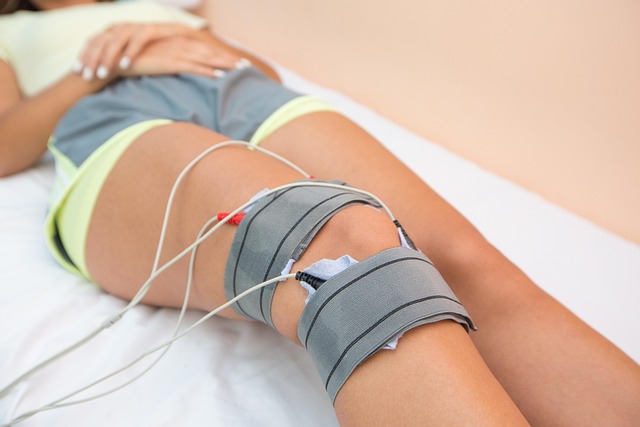Early sobriety presents unique challenges with high-risk situations that can trigger relapses. To combat this, personalized Relapse Prevention Plans (PRPPs) offer tailored strategies, combining group counseling, online support, mindfulness techniques, and holistic wellness programs. By identifying vulnerabilities, teaching healthy coping, and integrating evidence-based practices like sleep coaching and stress reduction, PRPPs help individuals stay motivated, avoid triggers, and adapt plans as their needs evolve, reducing relapse risk and supporting co-occurring disorder treatments.
Personalized Relapse Prevention Plans (PRPPs) offer a powerful tool for individuals seeking to maintain sobriety. This article explores how PRPPs equip people with the skills to anticipate and navigate high-risk situations, a key aspect of long-term recovery. We delve into the science behind these plans, highlighting their ability to empower individuals to make informed choices and stay motivated during the crucial early stages of sobriety. Discover practical strategies to foster resilience and overcome potential triggers.
- Understanding High-Risk Situations and Their Impact on Sobriety
- The Role of Personalized Relapse Prevention Plans (PRPPs)
- Strategies to Stay Motivated During Early Sobriety with PRPPs
Understanding High-Risk Situations and Their Impact on Sobriety

High-risk situations are environments or circumstances that have the potential to trigger a relapse, particularly in the early stages of sobriety. These can range from social gatherings with peers still engaging in addictive behaviors to specific locations or times of day associated with past substance use. Understanding these triggers and their impact on an individual’s sobriety is crucial for developing effective prevention strategies. Many people in early sobriety find that recognizing and avoiding high-risk situations, or preparing accordingly, are essential ways to stay motivated and maintain their progress.
For instance, a person in recovery might discover that certain social events, like bars or parties, pose significant risks due to the presence of alcohol or other substances. Alternatively, specific emotions or stressors could be triggers, requiring individuals to learn mindfulness techniques for stress relief. Online Support Groups for Loved Ones of Addicts can also provide insights into high-risk situations from the perspective of family and friends, fostering a deeper understanding of the challenges faced during recovery. Holistic Wellness Programs Integrating Yoga, Meditation, and Nutrition for Deep Healing offer comprehensive tools to manage stress, enhance overall well-being, and develop healthier coping mechanisms, which are vital in navigating high-risk situations successfully.
The Role of Personalized Relapse Prevention Plans (PRPPs)

Personalized Relapse Prevention Plans (PRPPs) are tailored strategies designed to empower individuals in their early sobriety journey. These plans go beyond generic advice, addressing unique triggers and challenges faced by each person. By forecasting potential high-risk situations, PRPPs equip individuals with proactive coping mechanisms. This proactive approach is a game-changer when it comes to staying motivated in early sobriety, as it offers practical tools to navigate triggers and maintain progress.
Fostering accountability, empathy, and community among peers in recovery, PRPPs are often enhanced through Group Counseling Sessions and online Recovery Support Groups. These platforms provide additional support, allowing individuals to share experiences, gain insights, and learn from one another. Moreover, integrating healthy sleep habits coaching into the mix can further strengthen PRPPs, as adequate rest is crucial for emotional regulation and overall well-being, thereby increasing resilience against potential relapses.
Strategies to Stay Motivated During Early Sobriety with PRPPs

In the delicate early stages of sobriety, staying motivated is paramount to avoid potential triggers and high-risk situations. Personalized Relapse Prevention Plans (PRPPs) offer a strategic approach to this challenge by identifying individual vulnerabilities and strengths. These plans are tailored to help individuals recognize their personal cues and develop healthy coping mechanisms. By integrating evidence-based techniques like coaching on healthy sleep habits and incorporating activities such as yoga and meditation classes for stress reduction, PRPPs foster resilience against cravings and emotional triggers.
Moreover, PRPPs promote self-awareness by teaching individuals to recognize and prepare for high-risk scenarios, thereby empowering them with the tools to make better decisions. With ongoing support and regular review, these plans can be adapted as needs change, ensuring sustained motivation and a reduced risk of relapse. This proactive approach is particularly beneficial in conjunction with exploring co-occurring disorder treatment options, addressing underlying mental health issues that might contribute to substance abuse.
Personalized Relapse Prevention Plans (PRPPs) offer a powerful tool for maintaining sobriety by empowering individuals to anticipate and manage high-risk situations. By combining an understanding of personal triggers with tailored strategies, PRPPs enable folks to stay motivated during the crucial early stages of sobriety. These plans foster resilience, providing practical ways to navigate challenges and avoid relapse, ultimately contributing to long-term success.






